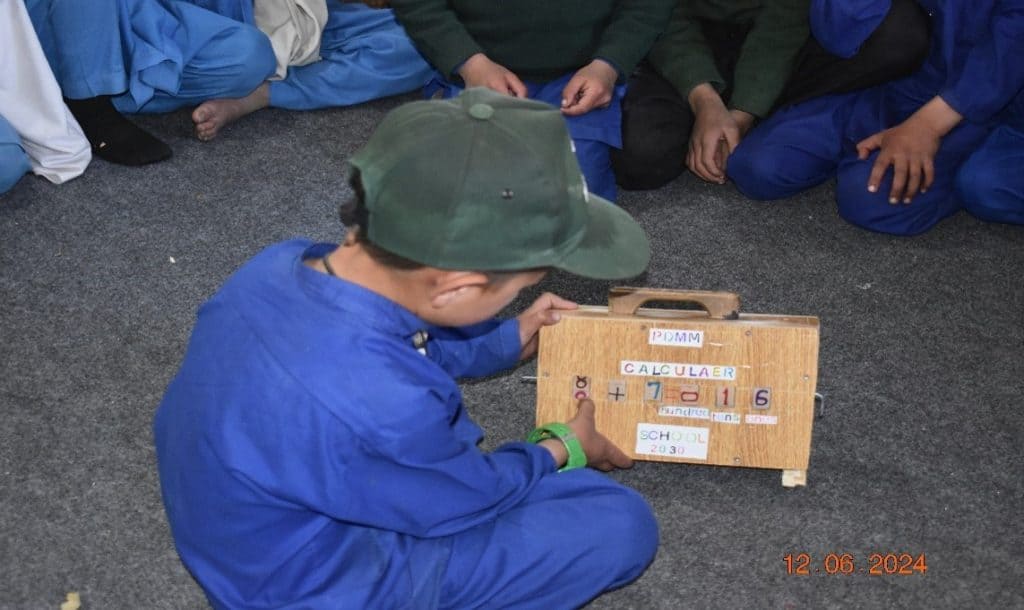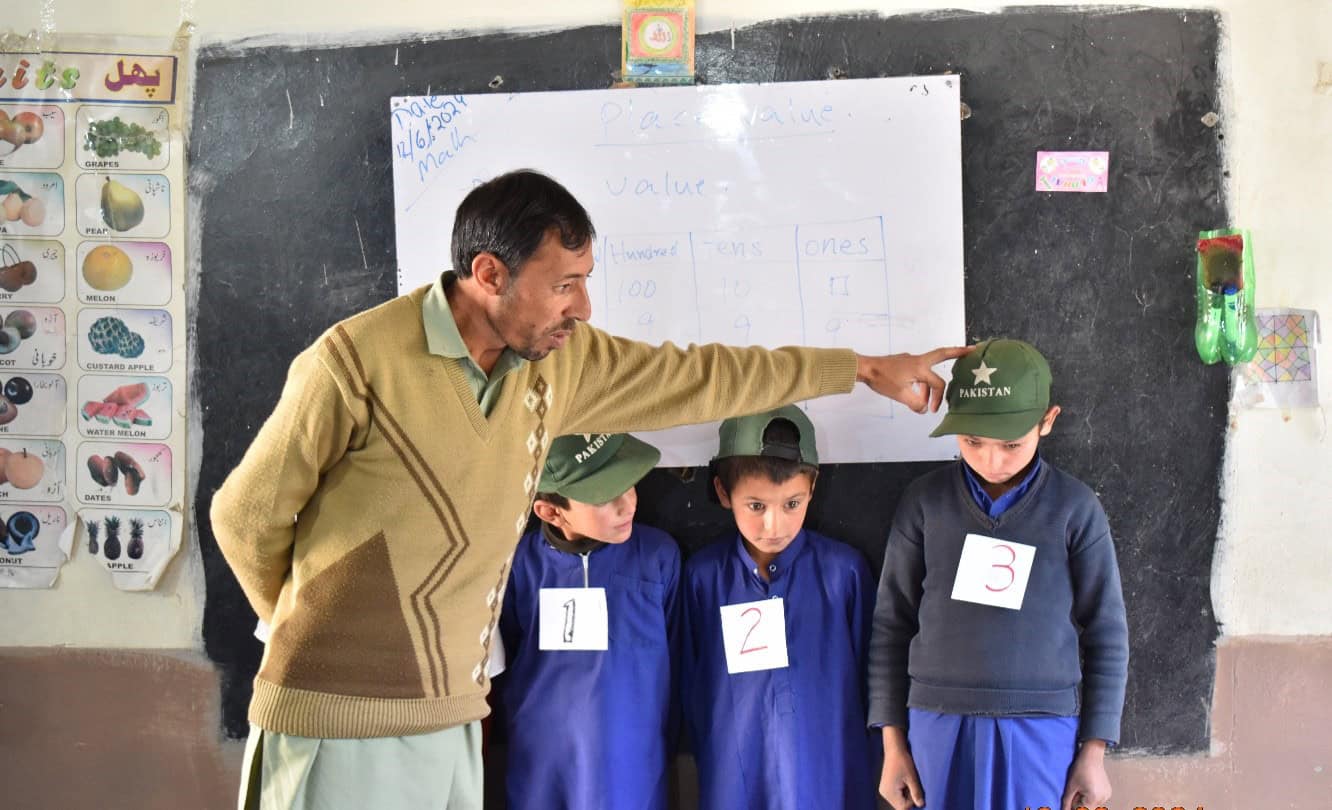In the remote village of Andraghach Khot, nestled in the mountainous terrain of Upper Chitral, life is not always easy. The people here face a variety of challenges, including surviving on limited means. Many residents are abroad in search of work, while those who remain either work in government roles or tend to small farms, though suitable land is scarce, and the crops barely provide enough to sustain them. Despite the many hardships, a story of community transformation is unfolding around the village school, led by dedicated teacher, Faiz Rehman.
Faiz Rehman, a devoted primary school teacher, has been working at the school for eight years. When he first joined, Faiz quickly noticed that his students were struggling in mathematics. He tried traditional teaching methods, including rote learning and recitation, but saw little improvement which left many students disengaged and falling behind. Without the tools to address the gaps, Faiz found himself searching for ways to make a real difference.
Three years ago, Faiz became part of the Schools2030 programme. By participating in specialised training sessions, including the use of holistic assessment tools and Human-Centred Design, Faiz found both the inspiration and the practical strategies he had been seeking to address the problem in his classroom.

Tailoring Learning to Student Needs
By using Schools2030 assessment tools, Faiz was able to identify the core issue – his students lacked the foundational mathematical skills needed for primary school topics. Armed with this new understanding, he began to design lessons tailored to the students’ specific needs.
Faiz introduced games and hands-on activities, turning maths into a fun and more interesting subject for his students. One of his most notable innovations is a wooden calculator he crafted by hand, alongside other low-cost teaching aids. These tools enabled students to better grasp the fundamentals of mathematics through play, such as addition, subtraction and division.

Embracing a Child-Centred Approach
By shifting from a teacher-centred to a child-centred classroom, Faiz empowered his students to become active participants in their own learning! The results were remarkable. Their performance improved significantly, and maths, once a subject of frustration, became a favourite activity among his students. Inspired by Faiz’s success, fellow teachers in the school began adopting similar techniques, creating a ripple effect of innovation. The simple act of creating affordable materials and engaging students through interactive activities was changing mindsets and the teachers’ approaches to their work.

Impact in the Wider Community
Parents and community members, initially sceptical of these new methods, soon noticed the transformation in their children and became supporters. “We’re seeing our kids use these materials at home and we’re thrilled with their progress,” shared Ahmad, parent of a student at the school.
Faiz’s journey reflects a deeper shift. The new holistic approach didn’t just change his mindset; it brought about a cultural shift in the entire community. Parents, teachers, and even education department officials began to see the importance of active participation in the teaching and learning process.
“This programme has been a game-changer. It’s research-based, and it allowed me to understand what my students really need. Through play and materials like the wooden calculator, the children are more engaged and learning with excitement. The impact has been incredible, and we’re eager to keep improving.”
Faiz Rehman, Teacher Government Primary School, Andraghach Khot
The story of Faiz Rehman and the Government Primary School in Andraghach Khot highlights how innovative education can transform classrooms, even in the most remote and challenging environments. In a region marked by economic and social struggle, teachers, students, and the community are becoming more united in their commitment to quality education.
